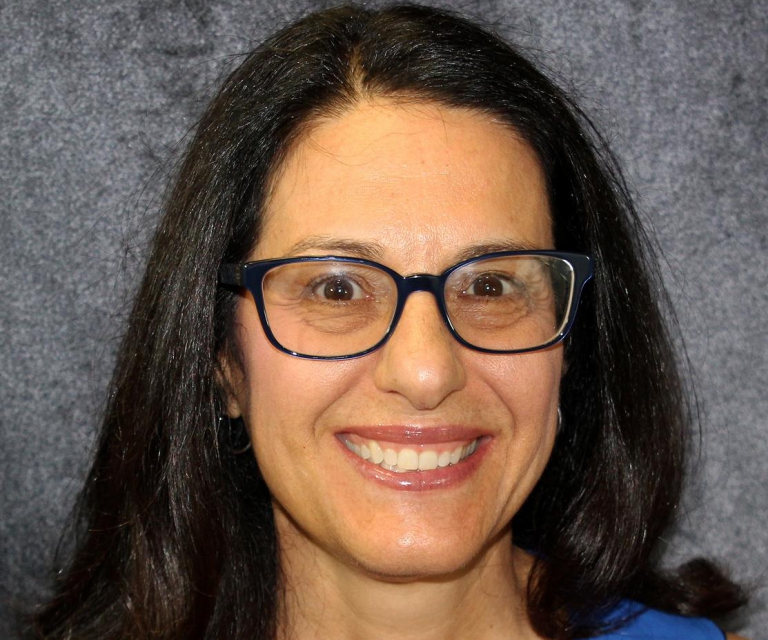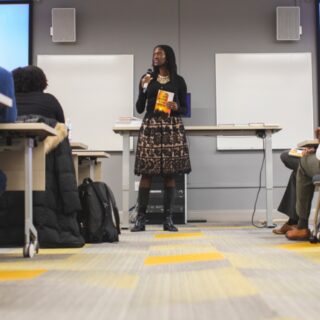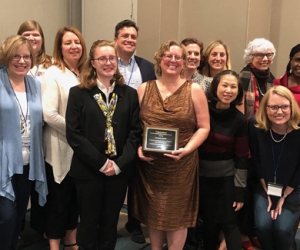
New Book Addresses Student Socialization in Higher Education
In graduate schools across the world, students studying higher education will soon be using a new book developed by faculty at the University of Pittsburgh School of Education.
Associate Professor Linda DeAngelo and Emeritus Faculty John Weidman are editors of the new volume Socialization in Higher Education and the Early Career: Theory, Research and Application, which was released in February as part of Springer’s Knowledge Studies in Higher Education series.
The book contains chapters from leading contemporary scholars on student socialization with respect to the changing population of 21st century learners. Focal points include students of color and other minoritized students, international students, STEM students, professional education and early-career experiences, and measurement issues in socialization research.
The book concludes with a chapter by Weidman and DeAngelo that presents an updated and revised socialization model for use in higher education research, practice and policy. This new model updates the original Weidman model by incorporating the latest scholarship on socialization as presented in and beyond the volume.
“John Weidman’s socialization model has stood the test of time in the study of college impact,” said DeAngelo. “Our new book moves the understanding of socialization beyond the White male norm that has predominated in the college impact literature. We present a nuanced approach for understanding how students at the undergraduate and graduate levels, as well as those in their early careers, experience college and the lifelong outcomes associated with those experiences.”
Focused on Equity and Justice
DeAngelo, who has been with the Pitt Education faculty since 2012, also serves as a faculty fellow at the school’s Center for Urban Education and is an affiliated faculty member of the Gender, Sexuality, and Women’s Studies program at the Dietrich School of Arts & Sciences. As a leading expert on how social inequalities are produced within higher education, DeAngelo’s scholarship focuses on retention, degree completion, and faculty mentorship.
“Our book’s new socialization model is significant in that it completes the model’s movement away from its structural-functional roots,” said DeAngelo. “The structural-functional models of the late 20th century frequently understood inequality using individualist and meritocratic frames. Critical scholars and those engaged in work to transform higher education for equity and justice will appreciate the utility of our new model for their work.”
Other faculty at Pitt Education also contributed chapters to the new textbook.
- Associate Professor Gina Garcia, one of the nation’s leading experts on Hispanic-Serving Institutions, co-authored a chapter about Latinx student socialization
- Jilly Perry, associate professor practice and executive director of the Carnegie Project on the Educational Doctorate (CPED), co-authored a chapter about the effects of doctoral student socialization within a Doctor of Education (EdD) program.
Training Future Leaders in Higher Education
Beyond this new book, faculty at Pitt Education are shaping the higher education field through the school’s graduate programs in Higher Education, which are offered at the Master of Education (MEd), Doctor of Education (EdD), and Doctor of Philosophy (PhD) levels.
In particular, the MEd in Higher Education program is a training ground for future student affairs leaders and administrators in higher education. According to DeAngelo, the program was one of the first to adopt a leading-edge curriculum focused on social justice and educational equity. Students also complete guaranteed internship placements and graduate with a 100 percent job placement rate.
“The higher education programs at Pitt are cutting-edge,” said DeAngelo. “Our students have the opportunity to study with leading scholars of higher education and student affairs. Our graduates and the employers who hire them tell us that the social justice perspectives and practical knowledge from our programs is an invaluable asset post-graduation.”
Learn More
-
The Higher Education programs are accepting applications. Please email soeinfo@pitt.edu to learn more.




